Dogs eating feces. The technical name for it is coprophagia. Yes, in some cases dogs get some nutritive value from such feces. Eating garbage and feces is thought to be one function of dogs during their early domestication, some 12,000 to 15,000 years ago. Canines commonly served as our first waste management workers, helping to keep the areas around human settlements clean, except for their own waste. Even today in parts of Asia and Africa, feces made up about 25% of a dogs’ overall diet, with human feces making up a large part of that percentage. However, here in the more civilized society, the mere thought makes us cringe.
Some suggest when dogs are fed an inadequate diet they are more likely to engage in coprophagia, presumably to get any available nutrients, however that is unproven. Many dogs will also ingest the feces of other carnivores, like raccoon's or possums despite the fact that these feces are unlikely sources of nutritive value. Dogs are notorious for eating cat feces from litter boxes simply because it is a delicacy to their taste buds.
Despite much hypothesizing about nutritional deficiencies, there is no apparent reason for this strange behavior. Some suggest that dogs are more likely to develop this behavior if they live in an impoverished environment. In fact, dogs left for long periods in an area with droppings will often play with the feces by tossing them in the air. So much for chew toys! This behavior can also contribute to the eventual development of coprophagia.
What Causes Coprophagia?
Actually, it’s considered Normal Behavior in dogs, which is why we train them to act otherwise in such situations.
Many species ingest their own or others animals’ feces if the feces are rich in nutrients. Herbivores, who eat only plants, are most likely to produce feces with nutritive value for dogs.
Medical Problems to Rule Out
Starvation, Malnutrition or Mal-absorption Disorders are not causes for this behavior normally. Again, it springs from a natural inclination.
Granted, if your dog isn’t getting sufficient food or isn’t able to digest the nutrition in his food, he may resort to coprophagia as a way to supplement his diet. However, most of us can rule that out right away. If feces feasting is present in your dog, get things under control quickly. Before doing anything else, it’s important to have your dog thoroughly examined by a veterinarian to rule out medical problems that could cause coprophagia.
What to Do About Coprophagia?
According to the ASPCA you should:
-
Make sure your dog is getting a quality, highly digestible diet to ensure that he’s not attracted to partially digested food in the feces. You usually can’t find high-quality dog kibble in supermarkets and grocery stores. Instead, locate a quality pet supply store in your area and look for premium brands with human-grade ingredients. Read the back of dog food bags, and pick a brand that lists one or more whole meat sources and not meat by-products as the first ingredient.
-
Accompany your dog to the yard and clean up feces immediately. If you have multiple dogs, be sure to clean up after all of them, even if only one eats feces.
-
Teach your dog the “Leave it” cue. This cue can be used to discourage contact with any item, including feces.
Resolving coprophagia can be challenging. Attempts to discourage any type of contact with feces are bound to fail because sniffing feces is such a fundamental investigative behavior in dogs. Drawing the line between sniffing and eating is not easy.
If the behavior has developed into a compulsive disorder, in addition to avoiding access to feces or discouraging ingestion, it’s important to provide alternatives, such as toys and games like fetch and tug, and adequate physical exercise. It may also be advisable to incorporate medication to battle parasites and worms that may be ingested. So much to consider, but so precious is your pet.
Now that you can impress your friends at the dog park with your knowledge of coprophagia, you might well enhance your knowledge by checking the ASPCA for more information.

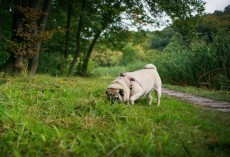
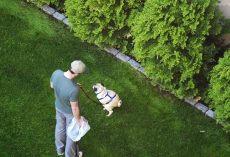
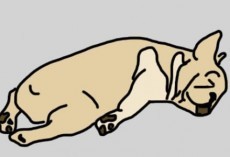
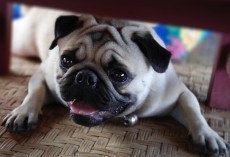

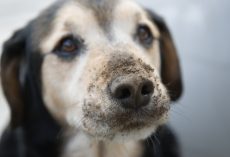
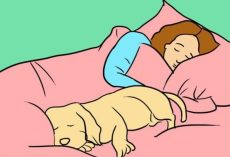
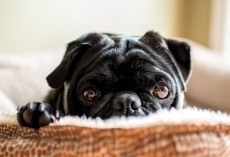


Melissa Ferguson
- Edit
Melissa Price Pinky!!! lol
John Burns
- Edit
Mine enjoys rabbit & cat turds. That boy ain’t right.
Linda Eichhorn
- Edit
Rachel Reilly
Linda Eichhorn
- Edit
Brian Reilly